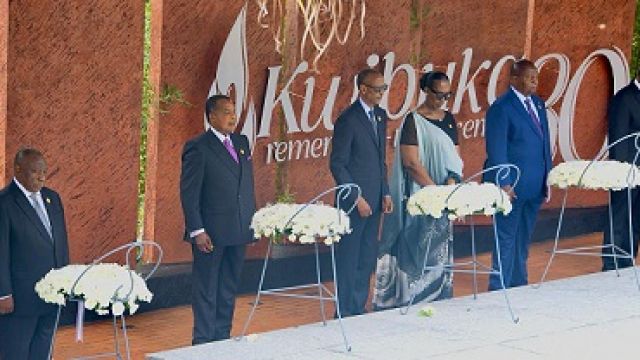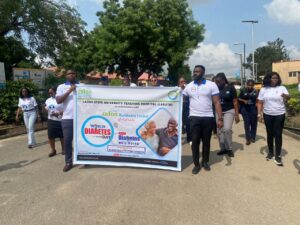
The United Nations Special Adviser on the Prevention of Genocide, Alice Wairimu Nderitu, joined the solemn commemoration of the 30th anniversary of the 1994 genocide against the Tutsi in Rwanda, during which a million people were deliberately and systematically killed in less than three months.
“Our commitment to honour the victims of the 1994 genocide against the Tutsi, in which Hutu and others who opposed it were killed, requires doing everything in our hands to prevent and to stop dynamics that can lead to the commission of genocide. When it comes to prevention, we must do more, and we must do better”, said Special Adviser Nderitu in the capital, Kigali.
The Special Adviser paid respects to the victims and survivors of the 1994 Genocide against the Tutsi, whose lives, dreams and aspirations were cut short or irrevocably altered by senseless violence that was fuelled by hate speech and built upon explicit calls to destroy an entire group, based on who they were. “Honouring also means accepting our responsibilities. The commemoration of the Genocide against the Tutsi in Rwanda will always remind us of our collective failure to prevent it, despite clear signs of what was coming. We failed to protect those innocent civilians because we failed to recognize the warning signs of impending violence,” she emphasized, adding that the key lesson remains that “the first line of response needs to come way before violence is imminent. The adjective ‘early’ is often associated with the concept of warning, which is essential, but it does not sufficiently accompany the concept of response.
The cost of this gap, when the risk is too high, can be unbearable.”
In Rwanda and across the world, the KWIBUKA period – a period of mourning and remembering the victims of the 1994 Genocide against the Tutsi, is observed from April to June. In Kigali, Special Adviser Wairimu Nderitu also joined other United Nations representatives and representatives of the diplomatic corps in delivering remarks during a commemoration for the ten Belgian Peacekeepers who lost their lives during the Genocide against the Tutsi. “As we reflect on the legacy of these fallen heroes, let us recommit ourselves to the principles of peace, tolerance, and understanding. Let us strive to build a world where conflicts are resolved through dialogue and diplomacy,” stressed the Special Adviser. She also echoed the Secretary-General’s pledge to stand as one against all forms of hatred and discrimination, in a world where the darkest impulses of humanity are being awakened once again by the voices of extremism, division and hate.
During her visit, the Special Adviser also reflected upon Rwanda’s story of rebuilding and reconciliation in the past 30 years, while underlining the dangers in the rise of genocide denial. “Reconciliation means rejecting denial of genocide and war crimes and of any effort to glorify convicted war criminals. It also means recognizing the suffering of all victims and not attributing collective guilt. In Rwanda, this means accepting that the International Criminal Tribunal for Rwanda (ICTR) has determined conclusively that a genocide was committed against the Tutsi. This constitutes an important step towards accountability, fostering peace and stability and promoting reconciliation in Rwanda,” the Special Adviser stressed. She also noted that Rwanda’s majority young population was born just before or immediately after the Genocide, and its commitment to peace and prosperity carries the promise of “never again”, not only in Rwanda but across the world.
The Special Adviser’s participation in this 30th-anniversary commemoration marks the second official visit by the Special Adviser to Rwanda, a country intricately linked to her mandate. The mandate of the Special Adviser on the Prevention of Genocide, aimed to alert and mobilize for the prevention of genocide, was created because of the recognized failures of the United Nations and the international community to prevent and respond to the Genocide against the Tutsi in Rwanda in 1994 and the Srebrenica Genocide in 1995.








